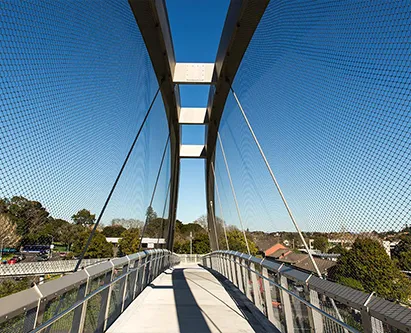Innovative Fencing Solutions for Agricultural Facilities and Farming Operations
Fencing for Farming A Vital Component for Agricultural Success
Farming, as one of the oldest trades known to humanity, has always required a harmonious balance of nature and nurture. Among the many tools and technologies that farmers deploy to ensure thriving crops and livestock, fencing stands out as an indispensable element. Fences serve various purposes, from protecting crops from wildlife to delineating property lines, and their significance in modern farming cannot be overstated.
The Role of Fencing in Agriculture
Fencing in agriculture serves several critical functions. Firstly, it creates a barrier that keeps livestock contained within designated areas. This containment is crucial for preventing animals from straying into potentially hazardous terrain or neighboring properties, where they could face dangers from traffic, predators, or other hazards. A well-fenced farm helps ensure the safety and wellbeing of animals, allowing them to graze freely without threat while enabling farmers to manage their herds effectively.
Secondly, fencing protects crops from wildlife. Many farmers face challenges from deer, rabbits, and other animals that may munch on their hard-grown produce. By erecting sturdy fences, farmers can minimize the destruction caused by foraging animals, thus safeguarding their investments. For example, the presence of a deer fence can mean the difference between a profitable harvest and a wasted season.
Types of Fencing Materials
The choice of fencing materials is crucial for farmers to consider, as each type comes with its own advantages and challenges
. Common materials used in agricultural fencing include wood, metal, electric wire, and even synthetic options.1. Wood Fencing Once the standard in farming, wooden fences provide a classic look and can be quite sturdy. However, they require regular maintenance to prevent rot and damage from pests.
2. Barbed Wire Fencing Barbed wire is cost-effective and highly effective for keeping livestock contained. It is especially popular in large-scale farming operations, but it may not offer as much protection against smaller animals and requires careful installation to prevent injuries to livestock.
fence for farming factories

3. Electric Fencing Increasing in popularity, electric fences deliver a mild shock to animals that attempt to breach the barrier. They are highly effective for controlling both livestock and wildlife and are relatively easy to install. However, they require a consistent power supply and may need more maintenance than other options.
4. Synthetic Fencing Advanced materials like high-tensile polymer have emerged in recent years. These fences are durable, lightweight, and resistant to environmental wear and tear, making them an attractive option for many farmers.
Benefits of Investment in Quality Fencing
Investing in quality fencing can result in long-term benefits. Not only does proper fencing improve the operational efficiency of farming, but it can also enhance the property’s aesthetic appeal. High-quality fencing can increase property value, creating an attractive presentation to potential buyers. Additionally, well-maintained fences can reduce the risk of legal disputes with neighbors over property lines, streamlining operations and fostering good community relations.
Environmental Considerations
As we become more attuned to the environmental impacts of farming practices, it’s vital to consider sustainable fencing solutions. Fences made from renewable materials or using recycled components are increasingly available, allowing farmers to maintain their operations while also taking steps to reduce their ecological footprint. Furthermore, strategically placed fences can even promote biodiversity by creating habitats for local wildlife.
Conclusion
Fencing for farming is not merely a matter of creating boundaries; it is a foundational aspect of agricultural success that integrates the needs of livestock, crops, and the environment. With the right choice of materials and styles, farmers can ensure the protection of their investments and contribute to the sustainability of their practices. As agriculture continues to evolve, the importance of effective fencing remains steadfast, making it a vital consideration for any farming enterprise. Investing in fencing is not just a necessity but a strategic move towards achieving a flourishing agricultural operation.
-
Types and Uses of Common Nails in Construction
NewsJul.31,2025
-
The Transformative Role of Square Wire Mesh in Contemporary Architecture
NewsJul.31,2025
-
The Essential Role of Razor Wire in Modern Perimeter Security
NewsJul.31,2025
-
Installation Guide for Hexagonal Wire Netting Fencing
NewsJul.31,2025
-
How to Properly Use Rebar Wire Ties for Stronger Concrete Structures
NewsJul.31,2025
-
Creative and Decorative Uses of Barbed Wire in Design
NewsJul.31,2025














